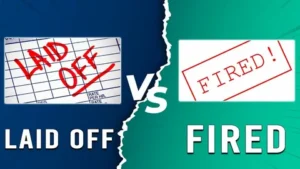Overqualified But Unemployed
You’ve got experience. Degrees, maybe leadership under your belt. You’ve done big things. You’ve led teams, launched projects, hit big milestones. On paper, you should be exactly what any company wants, but you’ve been unemployed for months, maybe longer. You’ve been applying for anything remotely within your skill set, and you haven’t got lucky.
Maybe you left your last job on your own terms. Or maybe the company folded. Maybe you were laid off. It doesn’t really matter, because at first, you think, I’ve got this. I’ll find something soon. You brushed up your CV, rehearsed your elevator pitch, updated your LinkedIn, and started applying for roles that matched your experience. It felt like a temporary bump. You assumed something would land soon.
Then weeks turn into months. Your network goes quiet. The recruiters stop replying. Suddenly, you’re looking at roles you would have never considered a year ago. You just need something. A win. A pay cheque. A break.
So you aim lower. You apply for roles two or three steps below where you’ve been. Not because you’ve lost your ambition, but because life is life-ing. The bills are real. You’re trying to stay afloat.
Maybe, you stare at another rejection email, wondering if the universe is playing some elaborate joke. Your experience, education, and even a track record that once made you feel proud are not getting the attention you hoped for.
Why? Because, somehow, you’re “too much” for the job you need. The last recruiter you heard from said: “Sorry, we think you’re overqualified.” And you sit there thinking, What does that even mean when I’m just trying to survive? I’ve been there.
The Identity Shift No One Talks About
There’s a quiet identity crisis that creeps in when you’ve been unemployed for a while. At first, you apply for jobs that match your experience. Roles that feel like a continuation of the person you were. But when the rejections keep coming and the silence gets louder, you start lowering the bar, because reality is knocking louder than your pride.
You start applying for roles that, a year ago, would’ve felt like a step backwards. And a part of you wonders if this is who you’ve become now, just someone trying to get by.
It’s disorienting. You begin to grieve the version of you that once felt in control. You feel exposed, like the world is watching you shrink. And worse, you quietly wonder if you’ll ever feel like yourself again.
Choosing to do what you must whether it’s taking a lower role, switching industries, or starting over is survival and survival is a full-time job. It doesn’t make you weak. It makes you human.
You can adapt to your new reality without letting it define your worth.
You can take a job “beneath” your old title and still walk with your head high. You can hold both your disappointment and your dignity.
To move through this season, you have to stop measuring your value by the role you hold. Let your integrity, your effort, and your resilience be your definition. Your job title may change, but who you are and what you’re capable of remains intact.
It’s okay to pivot. It’s okay to rebuild. Just don’t forget who you are while you do.

What Recruiters Really Mean When They Say You’re Overqualified
Most recruiters won’t tell you this outright, but “overqualified” can be code for a few things. It is rarely about you being too good. It’s about the assumptions they’ve made about who you are and what you’ll do if they hire you. They’re questioning your intentions. They’re wondering if hiring you will backfire somehow.
They are wondering:
Will you leave as soon as something “better” shows up?
They worry you’re just passing time, treating their role like a temporary stopover. And they fear that the moment another role with a fancier title or better pay opens up, you’ll walk. They want someone who will stay, not someone just waiting for the next thing.
Can we even afford someone with this background?
Even if you’ve told them you’re fine with the pay, there’s still doubt. They assume your expectations are high. That you’ll negotiate hard. That maybe you’ll feel resentful when you realise there’s no fuel allowance, no official laptop, and the “team bonding” is just meat pies and soda in the conference room every quarter.
Will you actually be challenged here or bored out of your mind in a month?
They imagine you breezing through the tasks, getting antsy, and checking out mentally. They worry you won’t be stimulated enough to care, and that disinterest will slowly spread to the team.
Will your experience threaten the team dynamics?
Sometimes it’s political. If you’ve managed teams, led departments, or held executive roles, hiring managers might fear you’ll overshadow others or worse, them. They think, “What if he knows more than I do?” and that fear whispers louder than your qualifications ever could.
Can we manage you without feeling judged or second-guessed?
It’s a real concern. If your background suggests you’ve worked in environments with more structure or more seniority, there’s an unspoken worry: “Will this person respect our systems? Or will they come in and constantly compare us to their old job?” Even if you never would, the fear is already planted.
The sad part? Most of it might be wrong.
You may not care about titles right now. You may be genuinely excited about this specific role. You may be in a season where you want less pressure, not more. But they don’t see that. They’re reading between the lines of your résumé, filling in the blanks with their own insecurities.
And the cruel irony? The very things you think make you a strong candidate – your experience, your versatility, and your proven track record – become the reasons you’re seen as a “risky hire”. It’s not just about who you are. It’s about who they think you’ll be based on a few bullet points and a quick scroll through your LinkedIn. That’s the frustrating reality.
Living in the your reality
When life is happening to you, when you’re watching your savings dry up, when you’re supporting a family or barely keeping up with rent, applying for “lesser” roles isn’t a lack of vision. It’s survival. I repeat this, “survival is a full-time job”.
There’s this unspoken pressure in career spaces to only go after what aligns with your long-term goals, but sometimes your long-term goal is just getting through this month. That doesn’t make you desperate. That makes you human.
You’re not applying for a role below your potential because you’ve given up on your dreams. You’re doing it because you recognise that sometimes, dreams need stability. And right now, you’re chasing stability.
So when someone says, “You’re too experienced for this,” what you want to say is, “I’m just trying to keep my life together.”
How to Make Them See What You’re Really Offering
Unfortunately, most hiring managers won’t read between the lines. They’ll see a fancy CV, a long list of previous roles, and immediately think, “This person is going to leave in three months.” So you have to meet them halfway. You have to tell your story instead of letting them guess it.
Here’s how you do that without begging or apologising for where you’ve been.
1. Reframe Your Intent
Don’t hide your experience. Reframe it.
Try something like:
“I know I’ve held more senior roles in the past, but right now I’m intentionally looking for a position where I can bring steady value and focus on consistent delivery.”
Or
“I’m entering a new chapter professionally. I’m not chasing title or hierarchy right now; I’m prioritising fit, purpose, and sustainability.”
You’re not justifying. You’re showing that this isn’t a fluke. It’s a choice.
2. Adjust Your CV Without Dimming Your Light
You don’t have to include every single achievement you’ve ever had. That CEO-level transformation project from 2017 might be impressive, but it’s not always relevant if you’re applying for a coordinator or mid-level support role. Keep your CV tight, tailored, and focused on what matches the job in front of you.
Don’t lie. Just don’t overwhelm. Let your story breathe within the scope of the role.
3. Speak to Their Fears Before They Voice Them
Employers are afraid you’ll leave. So tell them upfront that you’re not just biding time.
Say:
“This isn’t a filler role for me. I’ve thought this through, and I see this as an opportunity to reset, contribute meaningfully, and grow in a way that aligns with where I am in life.”
That kind of clarity disarms people. It shifts the conversation from “Why would you take this?” to “We’d be lucky to have someone this intentional.” Because at the end of the day, everyone wants to feel chosen. Not just as a last resort, but with intention. And when you make it clear that this role is your choice, not just your fallback, that fear they’re carrying quiets down. Sometimes completely.
When to Change the Approach
If you’ve heard “overqualified” more than once, it might be time to shift tactics, not because you’re doing it wrong, but because your current approach might not be the most effective for the season you’re in.
Try this:
- Focus on roles where your experience is seen as depth, not threat. Think nonprofits, startups, or companies with mentorship cultures.
- Apply through referrals and conversations, not just job boards. People are more open to your story than cold algorithms.
- Consider project-based work, consulting, or part-time contracts as a bridge. These often have less bureaucracy around titles.
- Use your cover letter wisely. That’s your space to say what your résumé can’t explain.
Sometimes, it’s not about pushing harder. It’s about pivoting smarter.
If you’re reading this while staring at another job rejection, maybe with a cup of tea going cold beside you, or while lying on your back wondering what else you can do, I just want to say this:
You’re not doing anything wrong. You’re not behind. You’re not failing. Your experience still matters. Your background still holds value. But the world of hiring is filled with noise and bias and misunderstanding. So sometimes, you have to be your own translator. Tell your story. Own your season. And don’t let a few “you’re overqualified” emails make you forget everything you’ve already survived.
You’re in a hard season. One that requires humility, strategy, and a ridiculous amount of emotional stamina. But you’re still showing up. You’re still applying. You’re still willing. That’s strength. This is not the end. This is the middle.
Overqualified or not, you deserve a chance. One will come definitely. Until then, keep showing up as you are, not just as who the job descriptions say you should be.
For more on what to do when you’re overqualified for a job (but want it anyway), read this BetterUp article.
Stay frosty.




